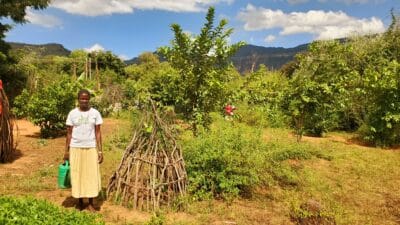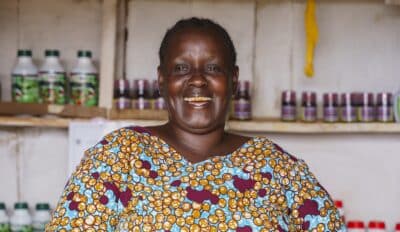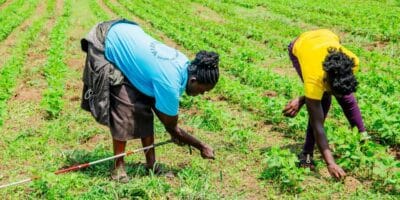News
11 August 2017
Goat and sheep rearing boosts women’s incomes in Ethiopia
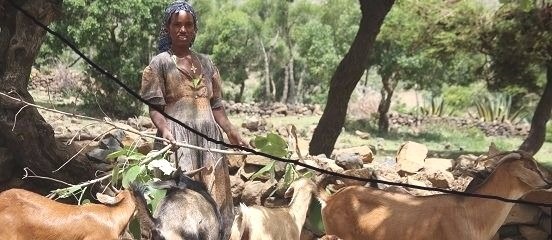
A total of 3,593 (and counting) women living in extreme poverty in Ethiopia’s Tigray region have received support from a Farm Africa goat and sheep rearing project.
Women taking part were each given a ‘package’ of three sheep or goats and technical training on forage management and how to care for their animals, on the understanding they would each pass on three of their goats’ or sheep’s offspring to another woman in need.
Land is scarce in Tigray and levels of poverty and malnutrition there are high, especially amongst women and children. Since joining the goat and sheep scheme, most of the women’s herds have increased to at least six animals, with some women now managing herds of as many as 15 goats.
As a result of selling an average of two offspring per year, the incomes of the women, most of whom have sole responsibility for their families, have increased to an average of ETB 4,218 per year, and their families’ diets have improved, with a wider range of nutritional food now being consumed.
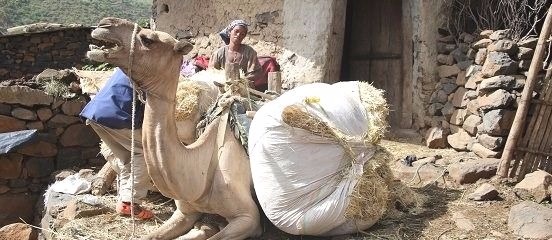
Hadas Aregawi is one of the beneficiaries of the programme, and like other women in the kebele of Tsemri, she used to struggle to eke out a living from her small patch of land whilst her husband looked for work as a labourer in nearby towns.
Hadas’ face brightened when she told us about her goats. After a local committee selected Hadas for support, she received three vaccinated goats and training in goat rearing from Farm Africa.
“After we completed the training, a purchasing committee and I went to the market, where I was allowed to select three she goats. I selected three pregnant sheep, had them vaccinated and happily took the sheep home.” Hadas successfully managed to grow her herd, and was able to pass on three goats to another woman in need, creating a cycle of improved prosperity.
Hadas’ herd continued to grow. “After I transferred the three goat kids, all of them began to deliver twins consecutively. Since then, I have sold 15 goats and I have six now.”
“Unlike in the past, we have no food shortages, we eat three times a day. Milk products as well as vegetables are now in our daily diet. We can now afford to go to the health station if we are sick. More importantly, we can afford to educate our children.”
Hadas concluded: “We could not have succeeded if Farm Africa just gave us three pregnant goats and went away. 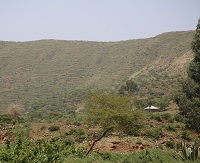
The training, the vaccinations, frequent visits, advice and encouragement the community facilitators have given us were absolutely necessary for us to succeed in our efforts. They have also given us new skills and created in us strong belief that poverty can be defeated through knowledge and hard work.”
The goat and sheep rearing scheme was part of Farm Africa’s Sustainable Agriculture for Improved Food Security project, which was funded by Irish Aid and the UK Department for International Development.
